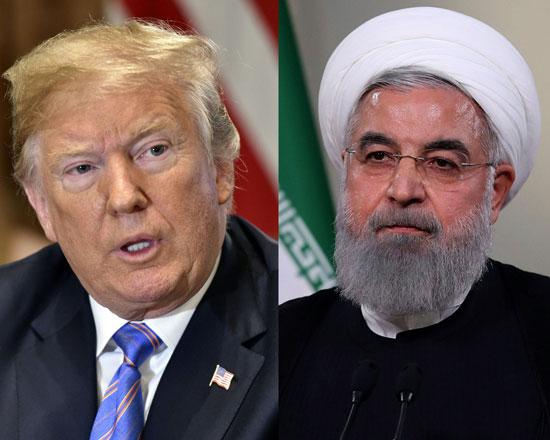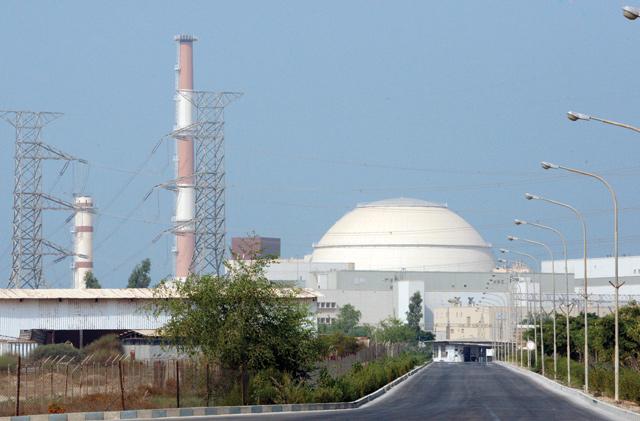You are here
A year after nuclear deal, Iran wary of rising US 'hostility'
By AFP - Jan 15,2017 - Last updated at Jan 15,2017
TEHRAN — A year after its nuclear deal took effect, Iran is increasingly concerned over the arrival of US President-elect Donald Trump, who has threatened to tear up the historic accord.
Analysts say it is unlikely the Trump administration will completely dismantle the agreement, which he described as "the worst deal ever negotiated".
A series of Cabinet appointments, however, have signalled Trump is likely to take a hardline on Tehran.
And that will ratchet up pressure on Iran's President Hassan Rouhani, who is making the nuclear deal a centrepiece of his re-election bid this year.
"Some of the people who are taking office in the executive branch have a long history of being against Iran," said Foad Izadi, a professor of international studies at Tehran University.
"We are going to see a harsher policy towards Iran during the Trump administration," he said.
On Sunday, Iran's top negotiator in the nuclear talks accused Washington of doing "whatever it can to slow down Iran's progress" after the deal.
"In the last 12 months, we have witnessed delays and the disrespecting of promises by the US and some countries. Their hostility increases by the day," Deputy Foreign Minister Abbas Araghchi told reporters.
In confirmation hearings ahead of Trump's January 20 inauguration, several of his Cabinet nominees made clear their opposition to a further softening of ties with Tehran.
Secretary of state nominee Rex Tillerson said he would recommend a "full review" of the nuclear agreement.
'Stupid' to tear up deal
Defence secretary pick James Mattis said Washington needed to "live up" to its word on the accord, but also described Iran as "the biggest destabilising force in the Middle East".
Despite his fierce rhetoric and the views of senior Cabinet members, Trump is not likely to try to reverse the deal, experts say.
"The situation may become worse, but the [nuclear deal] will not be torn up, simply because that's stupid," said Nasser Hadian, another professor of international relations at Tehran University.
The agreement, which lifted a wide range of international sanctions in exchange for limits on Iran's nuclear programme, took effect on January 16, 2016 following years of talks.
Negotiated by Tehran and six world powers including the United States, Russia and China, the agreement was widely seen as a major victory for international diplomacy.
That would make reneging on the deal nearly impossible and fraught with huge risks, analysts say.
"Even the American hawks are all saying don't tear it up," Hadian said.
Instead, Hadian said, the Trump administration is likely to put pressure on Iran in areas outside the nuclear agreement, including with more sanctions based on its human rights record, ballistic missile programme and alleged support for "terrorism" in the Middle East.
That may be bad news for Rouhani, who is hoping to point to the agreement and the end of Iran's international isolation as he seeks re-election in a presidential vote in May.
Rouhani, a moderate, managed to push through the deal despite vocal opposition from hardliners, largely by touting its potential economic benefits for Iranians stung by years of sanctions.
Rouhani 'oversold' accord
In some areas, the deal has started paying off.
Iran more than doubled its oil exports to more than 2.5 million barrels per day last year, earning $29 billion in the nine months leading to December 20.
Energy giants including France's Total and Anglo-Dutch Shell are lining up to seek oil and gas deals, and manufacturing has been given a boost with the return of France's PSA, which operates joint ventures with local carmakers.
The lifting of sanctions also allowed the signing of two huge contracts for the purchase of 100 aircraft from European aerospace giant Airbus and another 80 from US rival Boeing.
But ordinary Iranians have yet to see much improvement in their daily lives.
While the economy grew by 6 per cent between March and September last year and inflation was brought back below 10 per cent, joblessness continued to rise, with 12.7 per cent of the working population unemployed. Among those under 29, more than a quarter were out of work.
Many Iranians believed the nuclear agreement would see a surge in economic activity, including foreign investments, "but a lot of those hopes have not materialised", Izadi said.
Iranian officials have accused Washington of failing to abide by the spirit of the deal, including with a raft of other sanctions related to non-nuclear issues that have helped deter major Western banks from returning to Iran.
Hadian said Rouhani had "oversold" the agreement by telling supporters: "If we have the deal, the next day sanctions are going to be removed and investments" will pour in.
"But he knew that this was impossible and will take time. The opposition is using that to attack the deal."
Related Articles
WASHINGTON/ANKARA — US President Donald Trump told Iran it risked dire consequences "the like of which few throughout history have suffered
TEHRAN — Iran's foreign ministry on Monday said that Tehran does not intend to expel the UN nuclear watchdog's inspectors, clarifying the im
PARIS — Plans by Iran to install advanced centrifuges at its main nuclear enrichment plant in Natanz are "deeply worrying", France, Germany

















